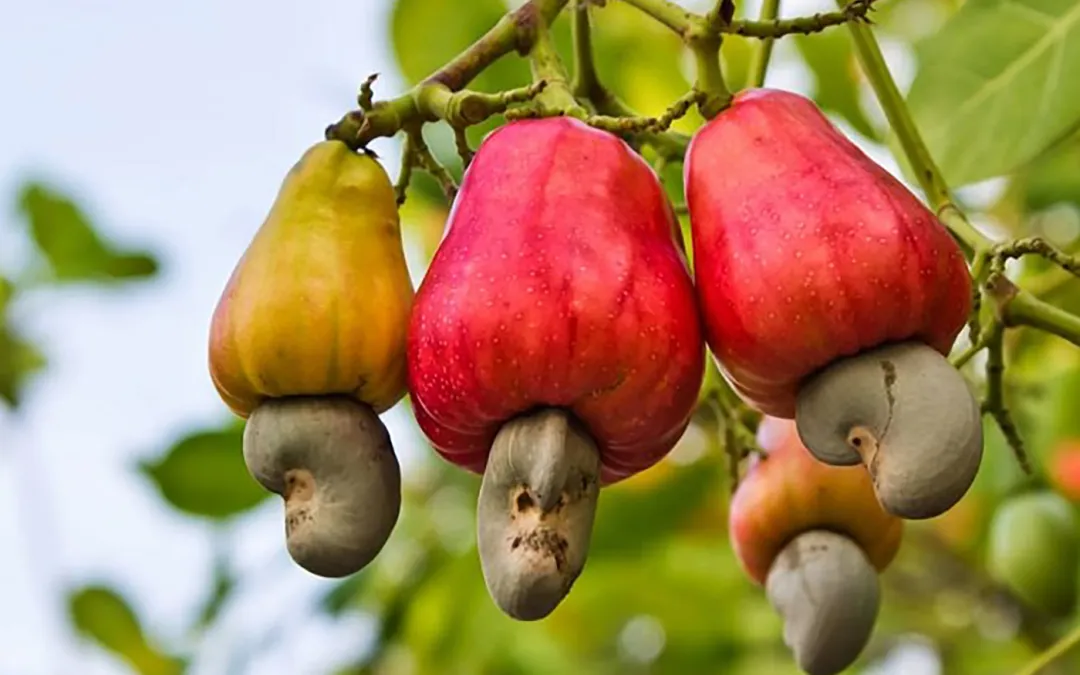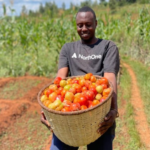In a decisive move to reposition itself within the global agricultural landscape, Nigeria has launched its first-ever National Cashew Research Strategy. It’s a landmark blueprint aimed at scaling the country’s annual cashew production from 400,000 to 700,000 metric tonnes.
This announcement, made during a high-level launch in Abuja, signals a shift from subsistence cashew farming to a more structured, research-led approach that prioritises productivity, climate resilience, and economic inclusion.
At the event, Director of Private Sector Development Mary Adazanyo highlighted the importance of embedding science and research at the heart of Nigeria’s agricultural development. She noted that while Nigeria remains one of Africa’s largest producers, with production rising by 25% in 2024 to around 400,000 tonnes it still processes just 15–20% of its output locally.
Without scientific backing and investment, she warned, the country’s ambition to climb higher within the global cashew trade would remain a pipe dream. The newly unveiled strategy, developed in partnership with the Science Institute of Nigeria and Germany’s GIZ, sets out a holistic plan to transform Nigeria’s cashew ecosystem from farm to factory.
While only 15 to 20 percent of the 400,000 metric tonnes of cashew produced in Nigeria is processed domestically, the real story lies in the 80 to 85 percent that is exported in its raw form. This vast bulk of unprocessed cashew represents lost economic value, missed employment opportunities, and a persistent reliance on external markets.
Instead of transforming these nuts into high-value products such as roasted kernels, cashew butter, or shell-derived industrial materials, Nigeria continues to ship them off to countries like Vietnam and India, nations that dominate the global cashew processing landscape.
There, Nigerian cashew is refined, packaged, and sold at a premium, often re-exported under foreign labels. This lopsided trade structure drains the country of its agricultural wealth. By failing to process the bulk of its produce, Nigeria inadvertently sustains a system where it earns the least from what it grows the most.
According to the World Integrated Trade Solution, Nigeria exported approximately 468,600 tonnes of raw cashew nuts in 2023, valued at around $351.6 million USD, with Vietnam and India as the top recipients. Production has climbed sharply since 2023 by 21% in export shipments, but nearly 80–85% of output continues to leave the country unprocessed.
The economic cost of this has been staggering; missed opportunities in value addition translated to lost revenue estimated at N3.18 trillion (about $1.98 billion) in 2023 alone.
Implications and Future Prospects
The launch of Nigeria’s National Cashew Research Strategy comes at a pivotal moment. The global cashew market is projected to surpass $9.05 billion by 2025, and if Nigeria can increase its processing ratio even modestly from the current 15–20% to, say, 50%, it stands to unlock substantial economic dividends.
Analysts estimate that value addition could generate hundreds of millions in additional export revenue annually.
Moreover, cashew drives livelihoods across the country: an estimated 300,000 households and over 600,000 jobs are linked to its production and marketing. From harvesting to transport and export, the value chain offers vast opportunities, especially if supported by modern agronomic practices and improved processing infrastructure.
Nigeria’s crux now is to retain more of this value domestically: supporting farmers, generating jobs, and attracting agritech and investment.
By focusing on scientific insights into spacing, plant geometry, yield optimization, processing technologies, and byproduct innovation, the research strategy aims to guide a smarter, accelerated transition.
The aspiration will create higher output, higher-quality and more climate-resilient crops that fetch premium prices globally. If implemented faithfully, backed by transparent governance, robust partnerships, and sustained funding, the strategy could lay the foundation for a world-class cashew sector.
With agriculture accounting for up to 60% of employment and playing a central role in Nigeria’s Gross Domestic Product and export economy, the stakes are high. Nigeria’s cashew future is now a test of how well science, policy, and investment can align for real transformation.
Nigeria has unveiled its first National Cashew Research Strategy aimed at increasing annual cashew production from 400,000 to 700,000 metric tonnes. This strategic move highlights a shift to a more research-focused agriculture approach, promoting productivity, climate resilience, and economic inclusion. Despite being a leading African cashew producer, Nigeria processes only 15-20% of its cashew domestically, with most being exported raw, which leads to missed economic opportunities. The plan, developed in collaboration with Nigeria's Science Institute and Germany’s GIZ, intends to revamp the cashew sector by enhancing processing capacities and keeping more value within the country.
In 2023, Nigeria exported approximately 468,600 tonnes of raw cashew nuts valued at $351.6 million USD. With the global cashew market projected to reach $9.05 billion by 2025, increasing domestic processing could substantially raise export revenues. The cashew industry supports around 300,000 households and over 600,000 jobs in Nigeria. The new strategy aims to advance scientific research in plant geometry, yield optimization, and processing technologies to produce high-quality, climate-resilient crops at premium prices. Ultimately, the goal is to create a world-class cashew sector that aligns scientific, policy, and investment efforts for sustainable transformation.






